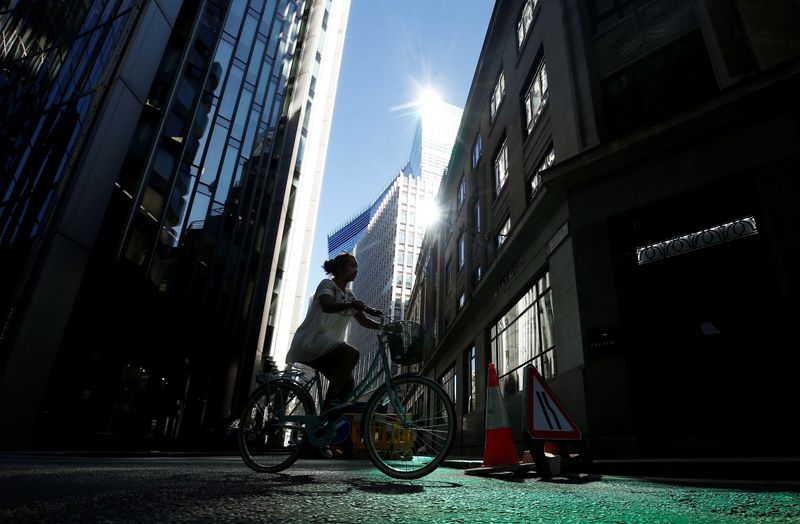By Kylie MacLellan
LONDON (Reuters) - Britain's government faced questions over how closely people would abide by its new COVID-19 test and trace service on Thursday, as a row persisted over the prime minister's closest adviser taking a long-distance journey during lockdown.
Lawmakers from the governing Conservative Party continue to add their names to those calling for Dominic Cummings to quit, after it was revealed he had travelled 400 km (250 miles) in March with his four-year-old son and his wife, who was sick at the time, to be close to relatives.
The new system, in place in England from Thursday, is seen as crucial to helping ease lockdown measures. Contacts of those who test positive for COVID-19 will be asked to isolate for 14 days, even if they have no symptoms.
Asked why the public should stick to the rules when many believe Cummings did not, health minister Matt Hancock told BBC radio: "The vast majority of people will understand that it is in everybody’s interests that those who are at higher risk follow these ... instructions and it is very, very important that they do."
"Frankly this is about how as a country we get out of this lockdown in the safest possible way short of having a vaccine or an effective treatment."
He also said employers should pay the wages of anyone told to stay at home and isolate by the service as this was equivalent in employment law to being off sick.
The tracing service, which will have a task-force of 40,000 specialists to test those with symptoms and identify their contacts, will initially rely on what the government described as people doing their "civic duty", but sanctions could be introduced if people did not comply.
Scotland, Wales and Northern Ireland have similar programmes just about to launch or already running.
Britain, which has the second highest death toll from the virus globally, abandoned a strategy of testing and tracing in March when the virus started spreading exponentially and there was insufficient capacity to test more than a fraction of those with symptoms.
The government says there is now enough capacity for all who need tests to get them. It is aiming to provide test results within 24 hours.
Hancock also said an accompanying tracing app, which is being trialled on the Isle of Wight and could help locate anonymous contacts, is ready but is not yet being brought in.
Britain is poised to start reopening non-essential retail shops and schools, and could possibly allow more social contact soon for millions of people who have been mostly stuck at home since March.
Any relaxation will depend on a review of the measures due to be presented to the government on Thursday by scientific advisers.
But the dispute over Cummings has prompted some to lose faith in the government's strategy, with many people unable to understand how a senior official had not broken the rules by driving across the country when the government repeatedly told people to "stay home" and "save lives".

Cummings has said he had acted reasonably and not broken the lockdown rules. But YouGov found 71% of people believed he had broken them, and 59% thought he should resign.